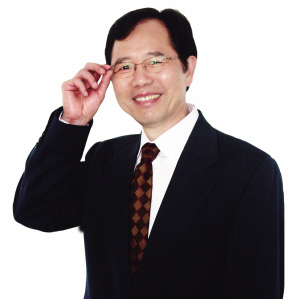供稿单位:互联网 责编:本站编辑 浏览: 0 次
FCE 阅读 Part 3
Instructions
You are going to read a magazine article about people who collect things.
For questions 1 – 15, choose the answer (A, B, C or D) which you think fits best according to the text.
Type A, B, C or D in the answer box, and the letters may be used more than once.
In the exam you need to be able to do this part in 15 minutes or less.
The Collectors 1
(A) Don Edwards collects sewing machines. His interest began while he was looking for second-hand furniture and kept seeing 'beautiful old sewing machines that cost next to nothing to buy'. He just couldn't resist them and now he has about 200 sewing machines at home.Then a friend had a sewing machine that wouldn't work, so she asked Don to look at it for her. He worked on it for a few days and eventually got it going. This led to him opening a small stand in a London market, but most people seemed uninterested, until one day a dealer came and bought everything he had. He was so excited he decided to go into the business seriously, but had no further success there and had to move to another market. Nowadays, he concentrates on domestic machines in their original box containers with their handbooks and is often asked if he does any sewing with them. The answer is that, apart from making sure that they work, he rarely touches them.
(B) Peter Holmes collects vintage cameras. He started when he was a boy, and got most of his collection from jumble sales and dustbins. But sadly, when he needed to buy his first house, he had to sell his valuable collection in order to put down a deposit. He missed his cameras so much that a few years later, he took up the interest again and now has over a thousand cameras, the earliest dating from 1860. He hopes one day to open his own photographic museum, in competition with The most famous collection of cameras, The Royal Camera Collection in Bath. But that has so few items on show at the same time that Peter feels his collection will easily compete with it. His objective is to enable members of the public to come and touch and fiddle around with his cameras.
(C) Helen Sharp collects plastic. Her interest started when she was commissioned to write her first book and in order to do this, she had to do her research. She attended a course on work machinery to understand the manufacture of plastics. As she gathered information for her book, she also began to collect pieces of plastic from every imaginable source like junk shops, arcades, and the cupboards of friends. She felt it was vital to keep examples because we live in an age of throw-away items such as taperecorders, cassettes and hair dryers which are all replaced very quickly. She has become one of the foremost authorities on plastics in Britain and her collection consists of plastic objects of every kind, dating from the middle of the last century and illustrating the complex uses of plastic over the years. She published a second book, Classic Plastics: from Bakelite to High Tech, which is the first published guide to plastics collecting. It describes collections that can be visited and gives simple and safe home tests for identification. She admits that 'plastic is a mysterious substance and many people are frightened of it. Even so, the band of collectors is constantly expanding.'
(D) Josi Ponchin collects art deco fans. She started her collection by accident in 1966 when she saw a shoe box full of them at an auction she went to, although she already had twenty years of experience of collecting one thing or another behind her. She was furious when she lost out in the auction because someone else bid more than her, but was stunned when he later came round to her flat and presented them to her. There were about five fans in the shoe-box and since then they've been exhibited in the first really big exhibition of 'art deco' in America. The fans are not normally on show, however, but are kept behind glass. They are extremely fragile and people are tempted to handle them. The idea is to have, one day, a black-lacquered room where they can be more easily seen. Josi doesn't restrict herself to fans of a particular period, but she will only buy a fan if it is in excellent condition.
Questions
1 - Who had to re-start their collection?
Your answer (A, B, C or D):
2 - Who has provided useful advice on their subject?
Your answer (A, B, C or D):
3 - Who was misled by an early success?
Your answer (A, B, C or D):
4 - Who received an unexpected gift?
Your answer (A, B, C or D):
5 - Who admits making little practical use of their collection?
Your answer (A, B, C or D):
6 - Who regrets the rapid disappearance of certain items?
Your answer (A, B, C or D):
7 - Who is aware that a fuller collection of items exists elsewhere?
Your answer (A, B, C or D):
8 - Who has a history of collecting different items?
Your answer (A, B, C or D):
9 - Who performed a favour for someone they knew?
Your answer (A, B, C or D):
10 - Who is a national expert on their subject?
Your answer (A, B, C or D):
11 - Who is aware that they form part of a growing group?
Your answer (A, B, C or D):
12 - Who insists on purchasing top-quality items?
Your answer (A, B, C or D):
13 - Who noticed items while looking for something else?
Your answer (A, B, C or D):
14 - Who has to protect their collection from damage?
Your answer (A, B, C or D):
15 - Who would like to create a hands-on display of their collection?
Your answer (A, B, C or D):
参考答案
1. B ( why?Q. 1) he had to sell his valuable collection in order to put down a deposit. He missed his cameras so much that a few years later, he took up the interest again)
2. C (why?Q. 2) gives simple and safe home tests for identification.)
3. A(why?Q. 3) one day a dealer came and bought everything he had. He was so excited he decided to go into the business seriously, but had no further success)
4. D(why?Q. 4) he later came round to her flat and presented them to her.)
5. A(why?Q. 5) apart from making sure that they work, he rarely touches them.)
6. C(why?Q. 6) we live in an age of throw-away items such as taperecorders, cassettes and hair dryers which are all replaced very quickly.)
7. B(why?Q. 7) He hopes one day to open his own photographic museum, in competition with The most famous collection of cameras, The Royal Camera Collection in Bath.)
8. D(why?Q. 8) she already had twenty years of experience of collecting one thing or another behind her.)
9. A(why?Q. 9) Then a friend had a sewing machine that wouldn't work, so she asked Don to look at it for her. He worked on it for a few days and eventually got it going.)
10. C(why?Q. 10) She has become one of the foremost authorities on plastics in Britain)
11. C(why?Q. 11) the band of collectors is constantly expanding.)
12. D(why?Q. 12) she will only buy a fan if it is in excellent condition.)
13. A(why?Q. 13) His interest began while he was looking for second-hand furniture and kept seeing 'beautiful old sewing machines that cost next to nothing to buy'.)
14. D(why?Q. 14) The fans are not normally on show, however, but are kept behind glass. They are extremely fragile and people are tempted to handle them.)
15. B(why?Q. 15) His objective is to enable members of the public to come and touch and fiddle around with his cameras.)









